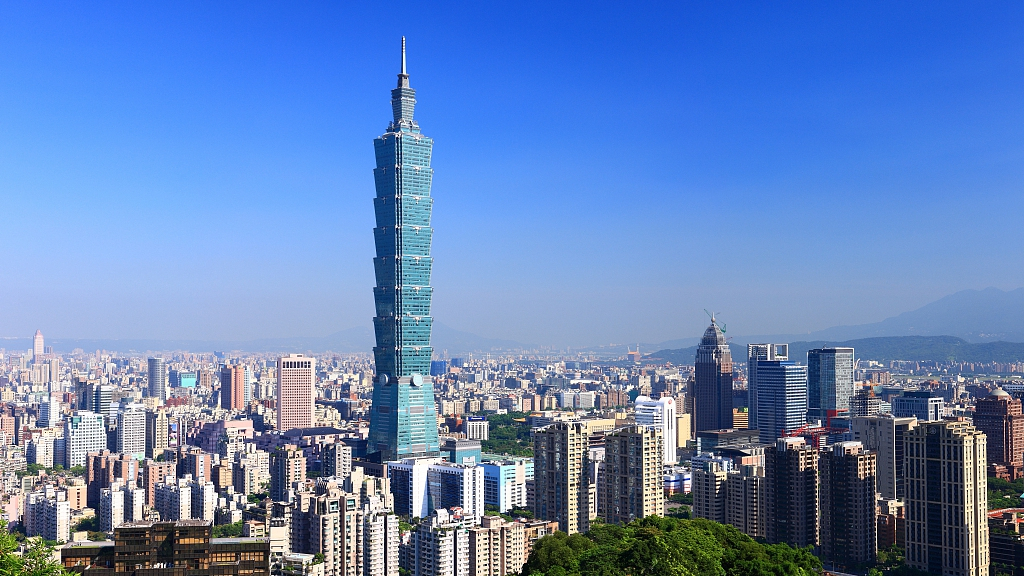Mainland spokesman says speech full of fallacies, ignores historical trend

A Chinese mainland spokesman on Monday condemned remarks by Taiwan leader Lai Ching-te, who asserted the island is "of course a country". The spokesman called Lai's statement a "blatant separatist declaration" that incites cross-Strait confrontation.
Chen Binhua, a spokesman for the State Council Taiwan Affairs Office, criticized Lai's comments, which were made during the first of a planned 10-part speech series titled "Uniting the Country", as being "filled with lies, deception, hostility and provocation".
Chen accused Lai of deliberately distorting history to promote what he called "Taiwan independence" fallacies. He suggested the speech served Lai's political aim of launching a recall campaign against opposition party "lawmakers".
READ MORE: Separatist acts can't stop civil exchanges between mainland and Taiwan
"The speech was a flawed mishmash of secessionist fallacies," Chen said, adding it exposed Lai's pro-separatism stance.
He emphasized that historical facts and legal documents demonstrate Taiwan has been an inseparable part of China since ancient times.
Chen further stated that Lai disregarded the historical fact that compatriots from Taiwan and the mainland united and made significant sacrifices to defeat foreign invaders, facilitating Taiwan's return to the "embrace of the motherland".
"This is a betrayal and a crime against the honorable patriotic tradition of the people in Taiwan and the sacrifices of countless martyrs," he said.
According to Chen, Lai distorted key concepts, ignored the outcomes of World War II and misrepresented international legal documents such as the Cairo Declaration, the Potsdam Proclamation and United Nations General Assembly Resolution 2758. Lai had claimed that "Taiwan does not belong to China" and advocated for "mutual non-subordination".
ALSO READ: China warns certain countries against emboldening separatists in Taiwan
"This flagrantly violates international law and constitutes a direct challenge to the authority of international law," Chen said.
"No matter how hard Lai tries, he cannot change the legal and factual reality that Taiwan is part of China, nor can he stop the historical trend toward national reunification," he added.
Lai's plan to give 10 speeches on "uniting the country" was announced by his office on Saturday, following the Taiwan "central election commission's" Friday announcement that a recall vote would take place on July 26. The commission approved the first batch of recall motions targeting 24 Chinese Kuomintang party "lawmakers" and the mayor of Hsinchu.
The upcoming vote will be crucial for restructuring the island's "legislature". Currently, the opposition holds a fragile but effective majority, with the KMT and the smaller Taiwan People's Party holding 62 seats, while the Democratic Progressive Party, which Lai belongs to, has 51 seats.
READ MORE: PLA slams British hype over patrol vessel's Taiwan Strait transit
The DPP, which held a legislative majority from 2016 to 2024, launched a sweeping recall campaign this year aimed at unseating opposition "lawmakers" in a bid to regain control of the "legislature".
Public opinion in Taiwan has condemned Lai for promoting a "Taiwan independence" historical view for the personal political purpose of unseating opposition "lawmakers".
Eric Chu Li-luan, chairman of the KMT, questioned whether Lai seeks to unite Taiwan or consolidate personal power. He criticized Lai for prioritizing personal interests by advocating for the recall of all opposition party "legislators".
Taiwan's United Daily News commented that Lai's calls for unity among ruling and opposition parties while pushing for the recall of opposition "legislators" were hypocritical.
The TPP issued a statement expressing deep shock at Lai's actions and criticized him for his disconnected historical perspective, describing his speech as "vacuous".


